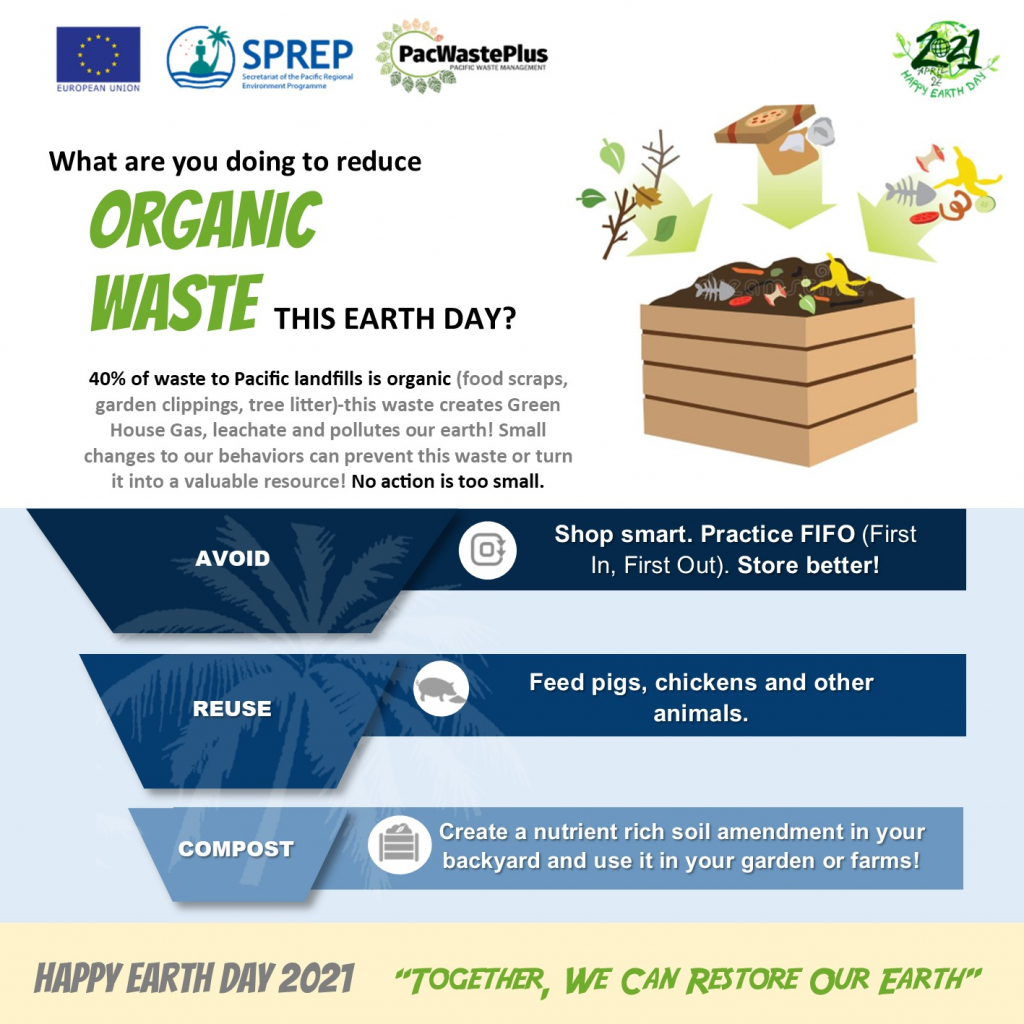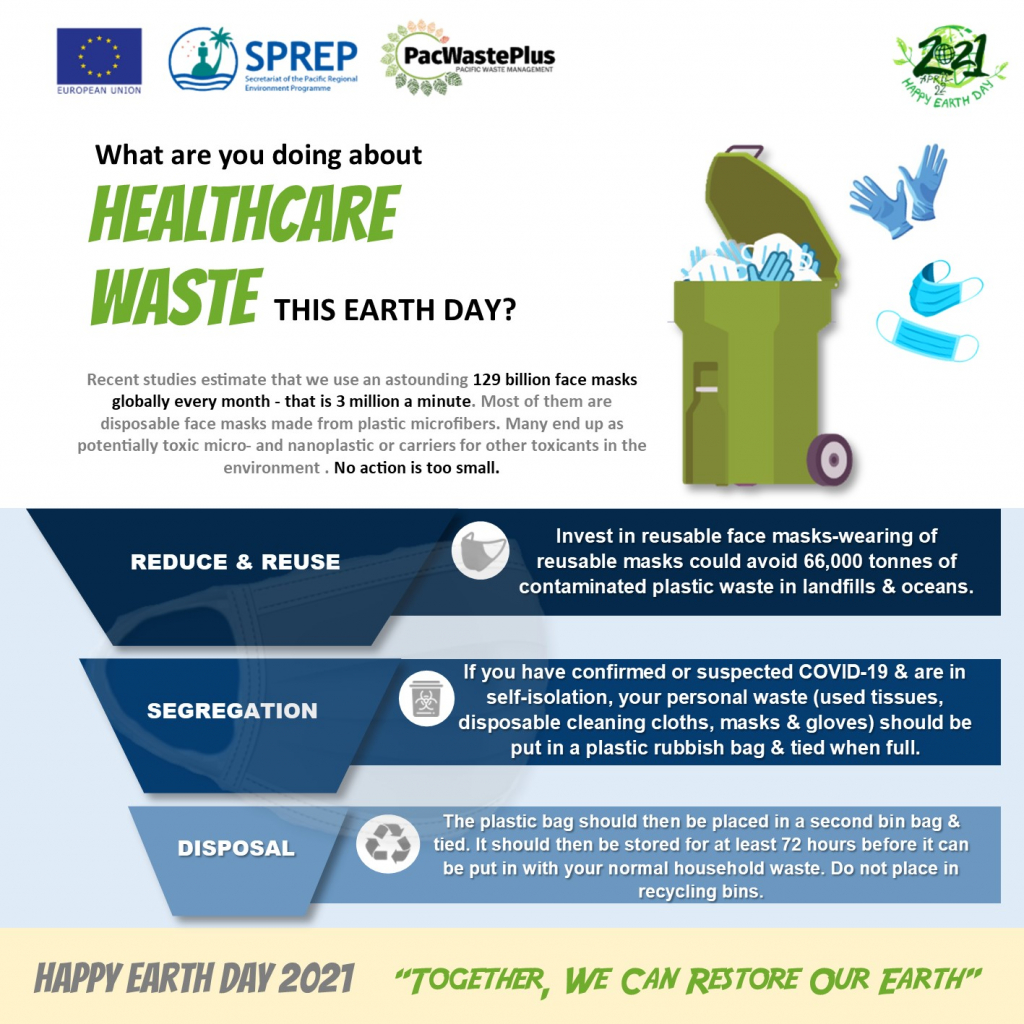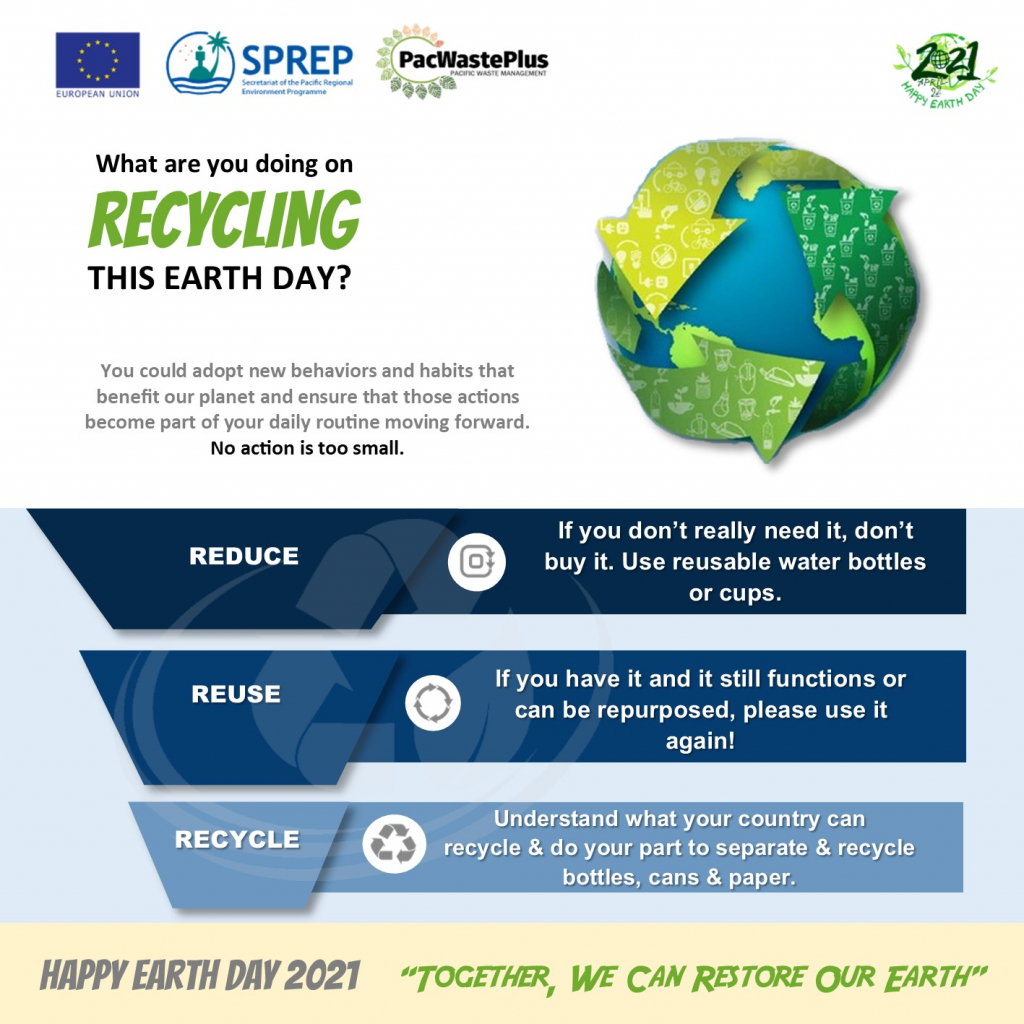
Pacific Environment Blog with SPREP! Nitish Narayan, PacWastePlus Communications Officer, SPREP
"In the mid-20th century, industrial America was booming. The economy was soaring but, the environment was suffering. As time went on, people began to grow concerned about the actions being taken and their ultimate impact. After a terrible oil spill, Senator Gaylord Nelson of Wisconsin was sparked with an idea, and so, with the help of others, the first Earth Day was held on April 22, 1970.
For the first 20 years of Earth Day’s existence, it was regarded as a primarily American event. However, in 1990, it expanded, and people started making Earth Day a day of observation and action around the world. Today, over 190 different countries recognise and observe Earth Day, trying to do their part to help our environment and make the world more sustainable.

While Earth Day is a very important day each year, it’s important to remember that it’s simply just a day. There are 364 other days in the year that we can be utilising to improve our planet and make this world a better place for everyone to live in.
No matter what day it is, there are always things that you can do to help keep our planet clean and prevent any more pollution and waste with so many ways that we can use our personal strengths to make a change.
One big way that you can help our Earth, which is the only one we have, is by taking action by reducing your waste footprint.
As more research is conducted, environmentalists are continually learning more and more about the impact we are having on the world around us.
In a world where there are so many disposable goods, our rubbish bags and bins are getting fuller, and our environment is feeling the effects. Population growth, urbanisation and changing consumption patterns have all contributed to the increasing challenge of waste management not only in the Pacific but globally.

This issue is not restricted purely to the problem of organic and recyclable waste. Dealing with electronic, disaster, healthcare, plastic, industrial and chemical waste will increasingly need to be integrated into management systems. For our member countries, this holds particular challenges.
Sustainability is one of the biggest issues facing the world today. As the world has modernised and become more advanced and efficient, trash accumulation continues to rise. What happens to all this waste? Where does it go?
Currently, most of it end up in landfills. Research shows more and more about the detrimental, long-term environmental impact landfills and dumps are having. Thankfully, with the help of days such as Earth Day and many initiatives and programs such as those being undertaken by SPREP and our Pacific partners and island countries and territories, people are becoming more and more aware of the impact waste has on our environment.

The Waste Management and Pollution Control programme of SPREP, under its various project initiatives such as Sustainable Waste Actions in the Pacific-SWAP (funded by Agence Française de Développement) PacWastePlus (funded by European Union), Pacific Ocean Litter Project (funded by Australian Aid) and Implementing Sustainable Low and Non-Chemical Development in SIDS-ISLANDS (funded by Global Environment Facility) are working with communities and member countries towards cost effective and sustainable management of waste and pollution.
One way that you can help the planet on any day of the year is to think about the waste you are producing, and act to reduce it – do you need to buy those products? Can you use something different that does not have as much packaging? Where there are no alternatives, dispose of your waste responsibly to reduce the impact of waste on the environment and your community. Whether you have started practicing recycling and backyard composting or not, there are many simple things you can do in your everyday life to help reduce the impact of waste on the environment.

Some small acts, that will contribute to a big change are:
- Use reusable Water Bottles
- Bring Your Own Grocery Bags when shopping
- Use reusable Dinnerware, Straws
- Go “Paperless”
- Buy Less
- Reuse Food Containers
- Upcycle - another really fun way to reduce your waste is to upcycle! Unleash your creative side and use various items that would be typically sent to the garbage can to create something new and fun! You could use the glass pasta jar, instead of reusing it as a nut and seed container, you could paint it, throw some ribbon around it, and call it a new vase!
- Shop Consciously - at stores, companies, and businesses that prioritise reducing waste as one of their values is another way that you can reduce your waste. By learning about how companies reduce their waste and responsibly dispose of their waste and only spending your money at those companies, you are sending a message.
Happy Earth Day everyone, and remember “together, we can restore our earth.”